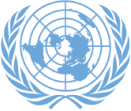Statement on behalf of the Caribbean Community (CARICOM) by The Honourable Ms. Amna Ally, M.P. Minister of Social Protection of the Cooperative Republic of Guyana at the Sixty-First Session of the Commission on the Status of Women
"Women’s economic empowerment in the changing world of work”
Mr. Chairperson, I am honoured to speak on behalf of the fourteen member States of the Caribbean Community (CARICOM). CARICOM thanks the Secretary General for the various reports issued for the 61st Session of the Commission on the Status of Women.
Mr. Chairperson, Women play a critical role in the socio-economic and political development of the Caribbean, and Member States of the sub-region take pride in the achievements made in the promotion of gender equality and the empowerment of women over the past four decades. Member States of CARICOM are working assiduously towards the achievement of the internationally agreed development goals and objectives relative to gender equality and the empowerment of women. As small States, we believe that providing women and girls with equal access to quality education, healthcare, decent work, and representation in political and economic decision-making processes will fuel sustainable economies and benefit societies and humanity at large.
As such, the theme of this year’s session is indeed relevant even as we continue to consider the role of women in the implementation of the 2030 Agenda for Sustainable Development. We note that the Agenda highlights gender equality and the empowerment of women as a necessary foundation for a peaceful, prosperous and sustainable world.
Mr. Chairperson,
The Caribbean witnessed improvements in women’s economic and social status over the last few decades. The gender gaps in education, access to healthcare services, labor force participation and political engagement were narrowed and the sub-region took steps to protect the rights of women and economic equality- granting women equal access to health, education and promoting economic rights such as land ownership. We are therefore at the forefront of leveling the playing field for women and men in the developing world.
Notwithstanding these gains, in many of our countries, gender inequalities are associated with vulnerability when they narrow the capabilities and options of women according to socially constructed gender roles. While significant progress has been achieved in the case of women in the Caribbean, many vulnerabilities and types of discrimination remain. Even when women succeed in entering the labour market, they still face disadvantages compared to men. Caribbean women´s participation is concentrated in middle- and low-level jobs and in sectors that are characterized by lower salaries and in lower levels in the employment hierarchy. In many of our countries, women continue to be most active in the informal sector. Women’s participation in senior managerial jobs is still limited to less than one quarter of these jobs in all analyzed Caribbean countries, with the exceptions of Barbados and St. Vincent and the Grenadines.
The health of our women remains a great concern. While our Region has all but eliminated the transmission of Mother-to-Child HIV, CARICOM continues to face challenges in stemming the tide of HIV/AIDS and in addressing the escalation and prevalence of non-communicable diseases, both of which disproportionately affect too many of our women, in particular the young.
Challenges persist in the area of violence against women Domestic Violence narrows women´s capabilities due to physical injury and psychological harm. Its outcomes affect self-esteem, work productivity and participation in society and in the labour force. Several factors are associated with violence against women, a key factor being women´s economic dependence. In Trinidad and Tobago, for example, 76 percent of women victims of domestic violence are economically dependent on their partners. Programmes and actions focusing on reducing and preventing violence against women in the Caribbean include awareness-raising and public education campaigns, the creation of family court systems and the creation of victim support groups among other initiatives.
Human trafficking continues to attract the attention of authorities in our Region. According to ECLAC, trafficking of women in the Caribbean has increased, in association with illegal migration where poor and vulnerable women are often victims of international criminal networks and of sexual exploitation in the tourism industry. Only some Caribbean countries have enacted specific legislation against trafficking in persons, namely Antigua and Barbuda, Barbados, Jamaica, Grenada and Guyana.
Mr. Chairperson, Allow me to touch on some other mitigating factors that affect women’s economic empowerment in our Region. Significant unemployment and under employment exists alongside acute skill shortages in some key sectors of our economies. The lack of access to technology by many of our young people has the potential to widen unemployment and poverty gaps, and this needs to be addressed. Greater efforts will be required to ensure that girls are receiving training in STEM subjects in order to close gaps in those fields as well. We concur with the findings of the Secretary General’s report that significant focus should be placed on enterprises as potential engines for job creation, including in green economy sectors such as sustainable energy and climate-resilient agriculture. In these sectors, women must also have access to markets, credit and social protection just as their male counterparts. Mr. Chairperson, CARICOM notes that discriminatory social norms and inequality in the sharing of family responsibilities can prevent women from attaining equal economic opportunities. CARICOM countries will continue to work on engaging men and boys in the empowerment of women, and to continue policies and programmes, such as paid maternity leave that support working mothers. The economic value of child rearing and domestic responsibilities may not be easily quantifiable as that of salaried work, but is nonetheless a vital contribution to a family’s and thereby society’s development and wellbeing. As we take necessary steps to empower women to enter the workforce, we should not forget the women who choose to devote their time to work in the home. Such women are equally in need of support and fair treatment. A critical component, therefore, of the economic empowerment of mothers is choice: namely, choice between entering the workforce and working in the home. And, of course, the most effective way to ensure that mothers enter the workforce in pursuit of vocations, rather than out of necessity, is to strengthen the family by all available means. A strong family empowers its women and girls to fully exercise their rights, including their choices on education, careers and child-bearing.
Mr. Chairperson,
CARICOM wishes to reiterate that a significant factor which affects the ability of Member States to meet their goals and targets, including in the area of advancement of women, is that of inadequate resources. It is therefore necessary for developed countries to fulfill their commitments made with regards to official development assistance with increased priority to gender equality and the empowerment of women. In January 2017, the Secretary General of CARICOM signed a Memorandum of Understanding with UN-Women to support the Community’s work on gender and regional statistics. This MOU will allow for the collection of Caribbean-wide data, statistics and analysis on the implementation of the gender dimensions of the Sustainable Development Goals (SDGs). CARICOM takes this opportunity to thank the UN system for its continuing role in assisting Member States’ development and in advancing the work on gender equality and the empowerment of women and girls in our region.
Mr. Chairperson, In conclusion, Member States of CARICOM wish to assert our full support for the attainment of women’s economic empowerment in the changing world of work. We emphasize our commitment to ensure that at the national level, all critical areas which require attention to foster equality between men and women, as well as the empowerment and advancement of women are addressed. We look forward to collaborating with Member States, UN-Women and other partners in the continued implementation of the 2030 Agenda.


